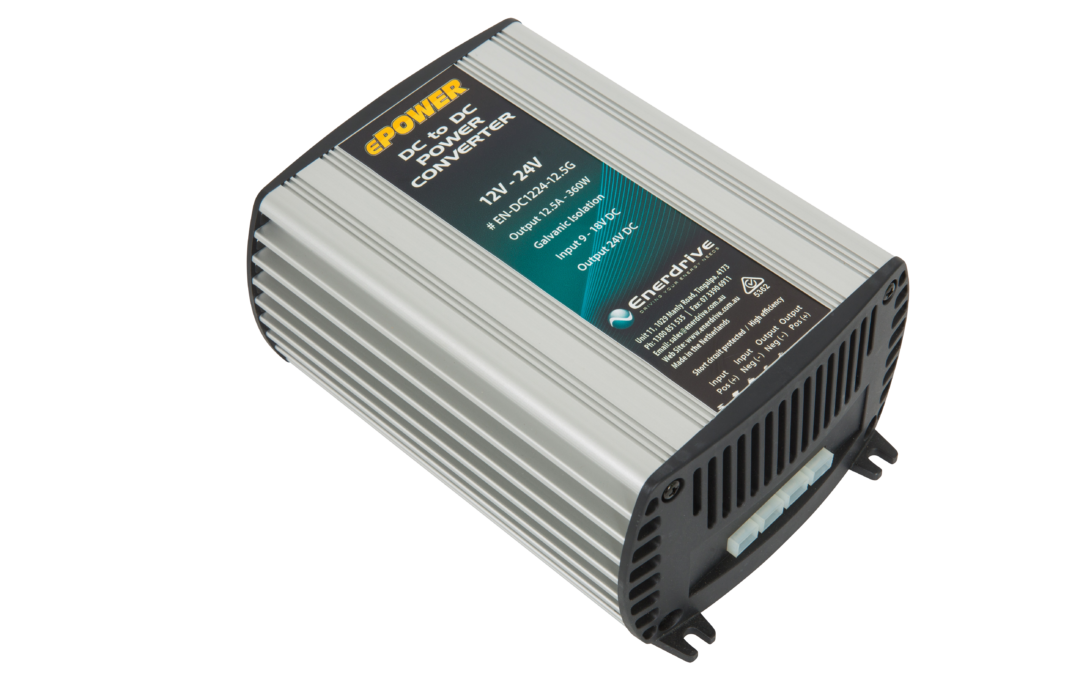Step Up-Step Down, Isolated & Non Isolated, what does it all mean?
What is a step up DC to DC Converter?
A step-up dc-dc converter is an electronic circuit that raises the DC voltage level from a lower value to a higher value. Assuming an ideal converter (100% efficiency),
Input Power = Output Power
Input Voltage × Input Current = Output voltage × Output current.
Hence a step-up dc-dc converter will reduce the input current level to a lower value at the output in the same proportion that it raises the value of the input voltage.
Step-up dc-dc converters would typically find applications in RV vehicles, heavy trucks, buses, marine, land mobile radios, CB radios, lighting systems, AM/FM sound systems.
What is a step down DC to DC Converter?
A step-up dc-dc converter is an electronic circuit that lowers the DC voltage level from a higher value to a lower value. Assuming an ideal converter (100% efficiency),
Input Power = Output Power
Input voltage × Input current = Output voltage × Output current.
Thus, a step-down dc-dc converter will increase the input current level to a higher value at the output in the same proportion that it lowers the value of the input voltage.
Step-up dc-dc converters would typically find applications in Earth-moving equipment, heavy trucks, buses, marine, CB radios, lighting systems, AM/FM sound systems.
What is the difference between non-isolated and isolated DC to DC Converters?
Isolated dc-dc converters (also known as galvanic isolated) provide full dielectric isolation (no electric contact) between input and output circuits by means of a high frequency transformer, which may be a requirement by certain safety agencies or for certain applications.
Isolated units have strong noise and interference blocking capability thus provide the load with a cleaner DC source which is required by many sensitive loads.
Typical applications requiring isolated dc-dc converters would be Communications, Entertainment & Navigation Systems, Forklifts etc.
Advantages of isolated DC to DC Converters?
- Safety to personnel, isolation prevents input voltage from transmitting to the output in case of internal failure.
- Voltage transients on the input are not transmitted to the output.
Non isolated DC to DC Converters?
Non-isolated DC-DC converters are common and of lower cost , they are used in most negative ground applications in vehicles for various DC powered appliances and equipment. However they have one big disadvantage in the electrical connection between the input and output which offers little or no protection to the load for any high electrical voltage , current and etc occurs on the input side. They also have less noise filtering blockage .
Typical applications requiring non-isolated dc-dc converters would be equipment not requiring noise suppression, common negative ground applications or due to the higher output voltage, they could also be used as a maintenance charger.
